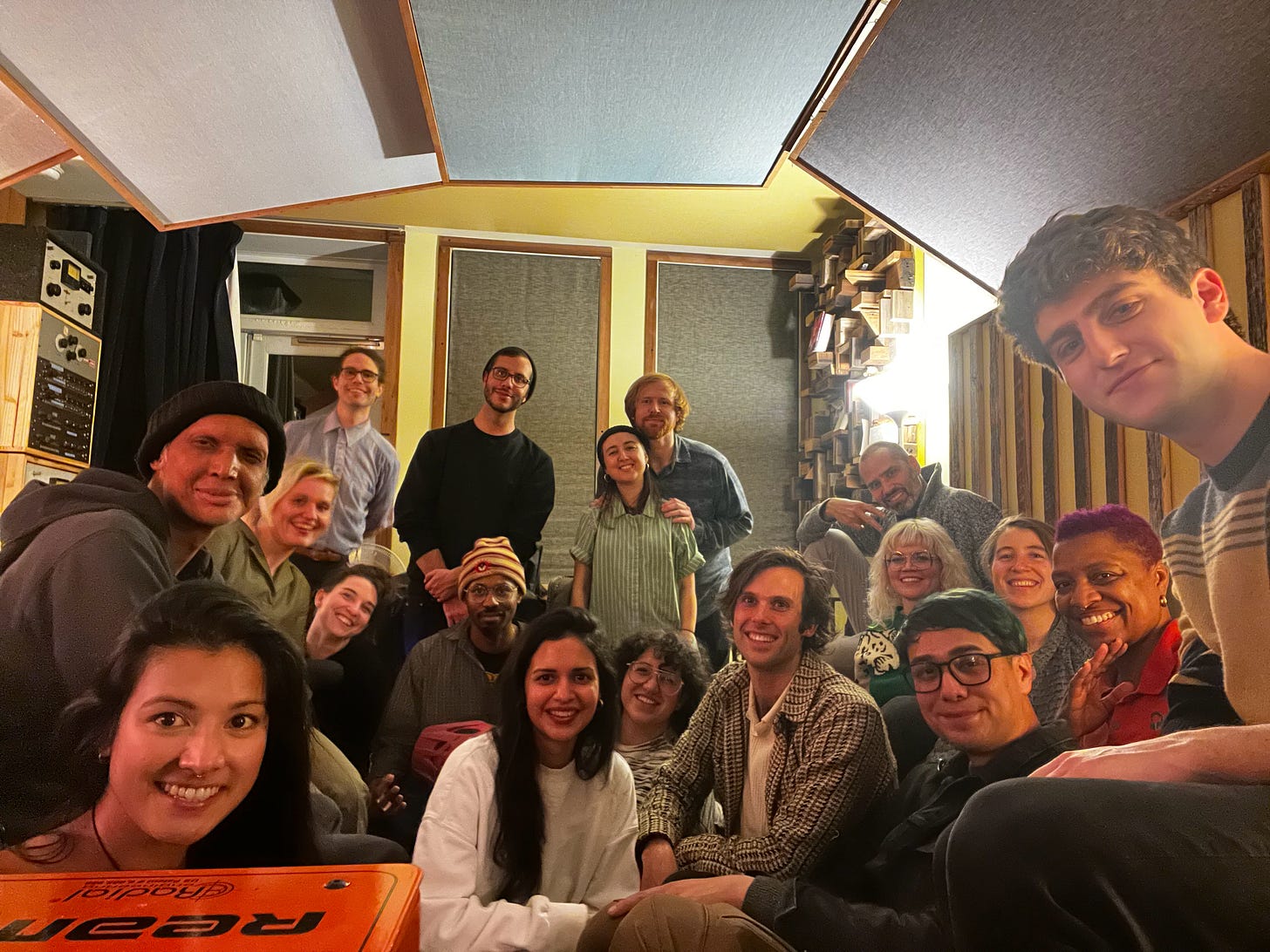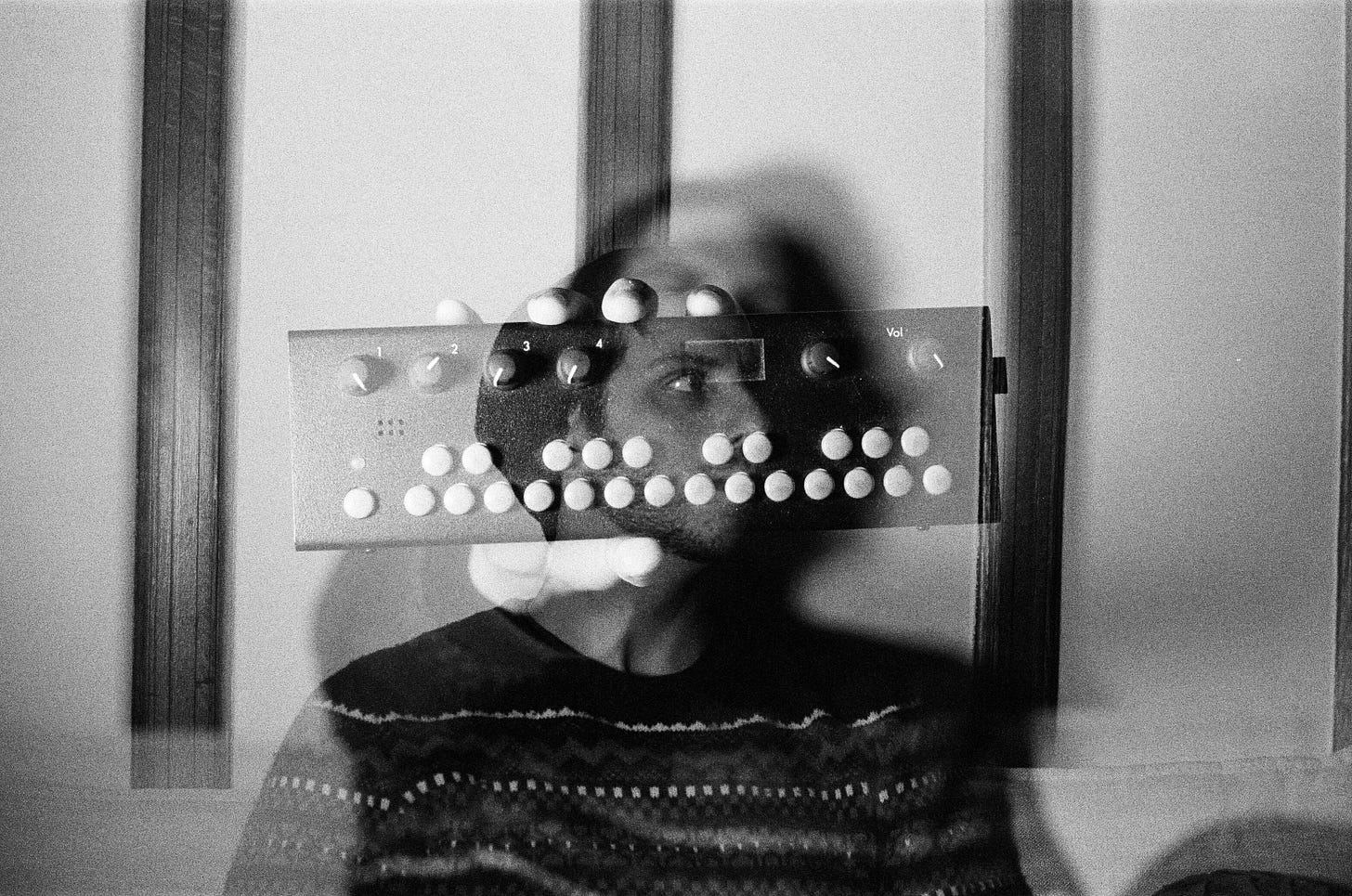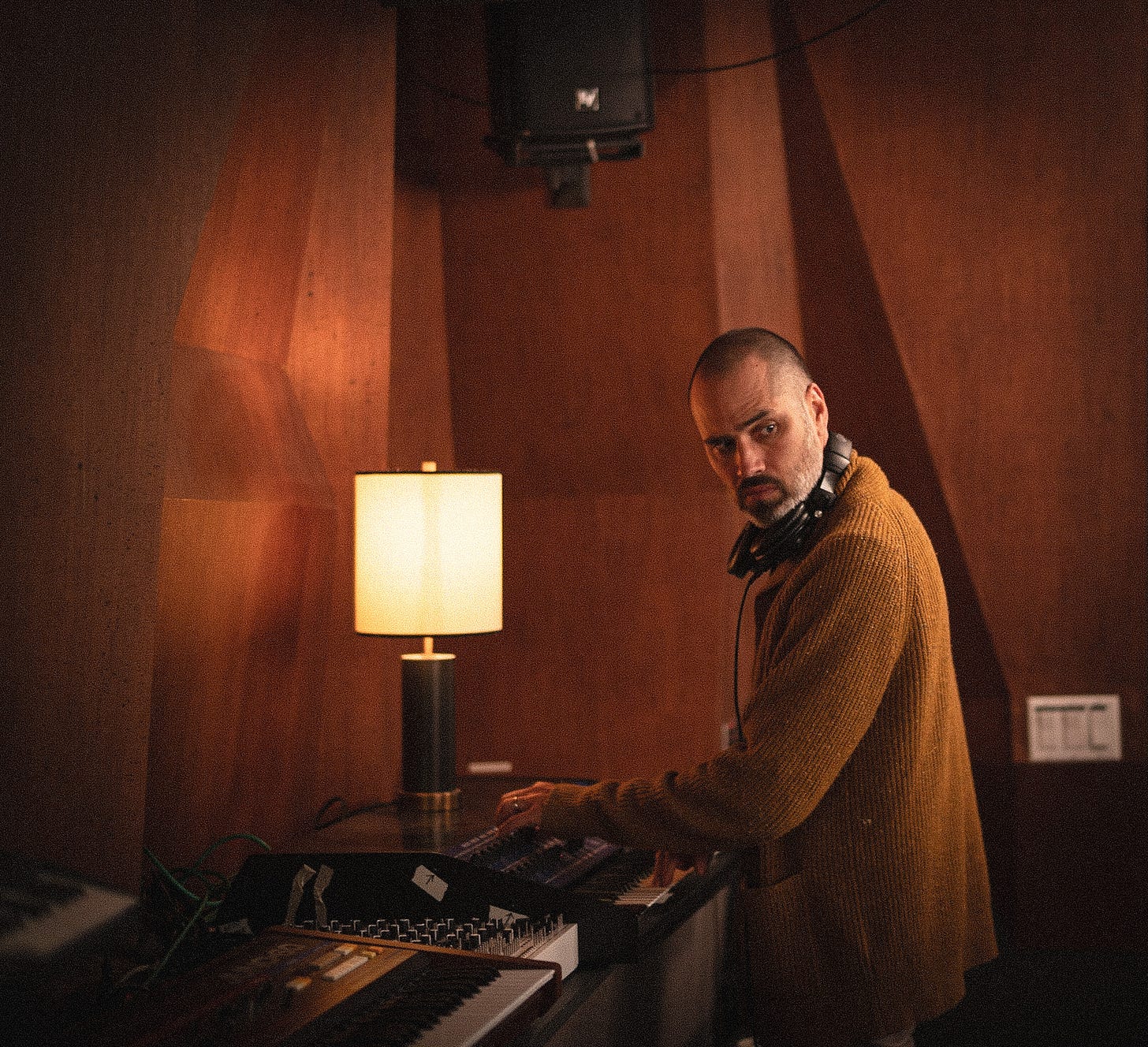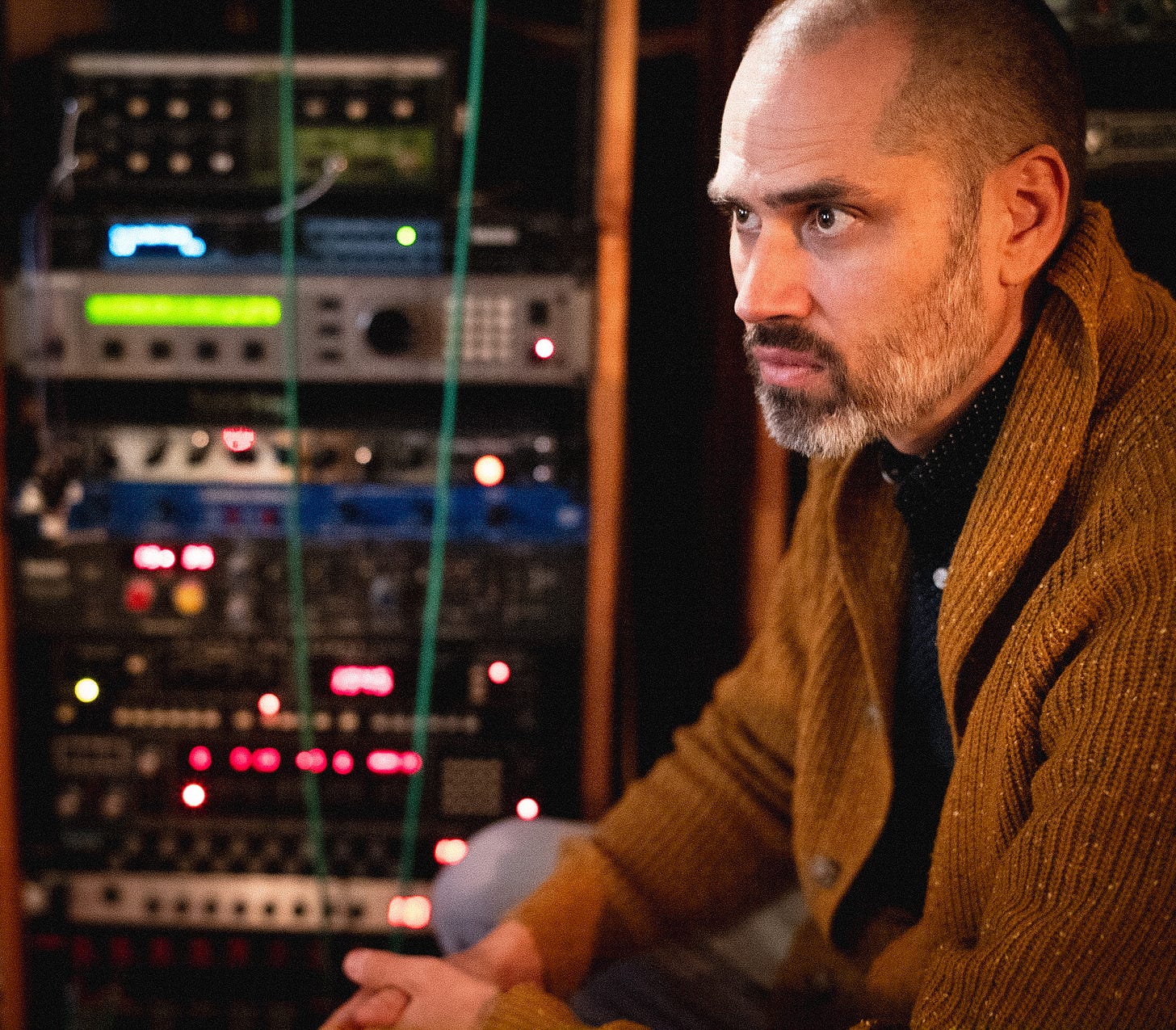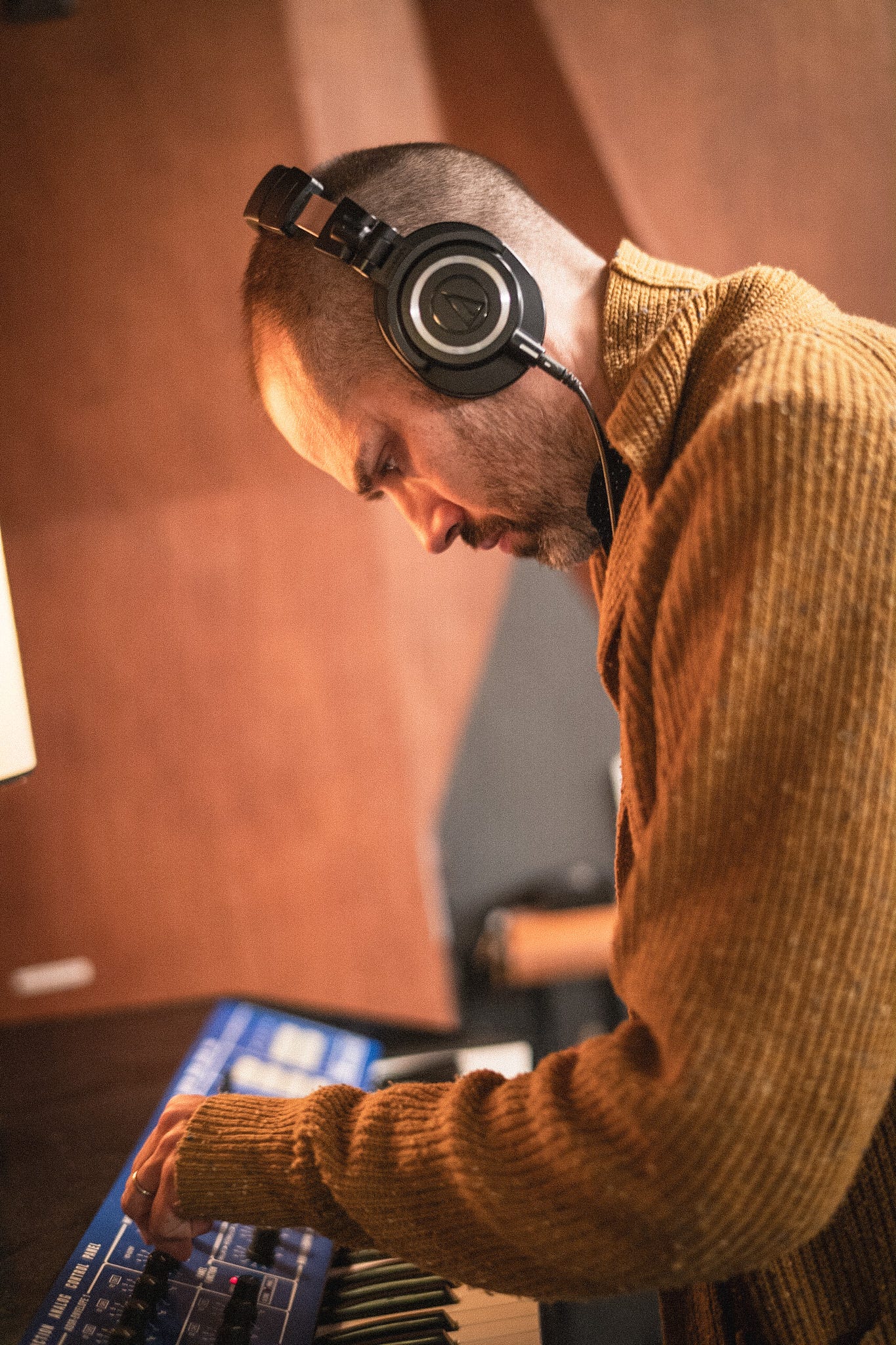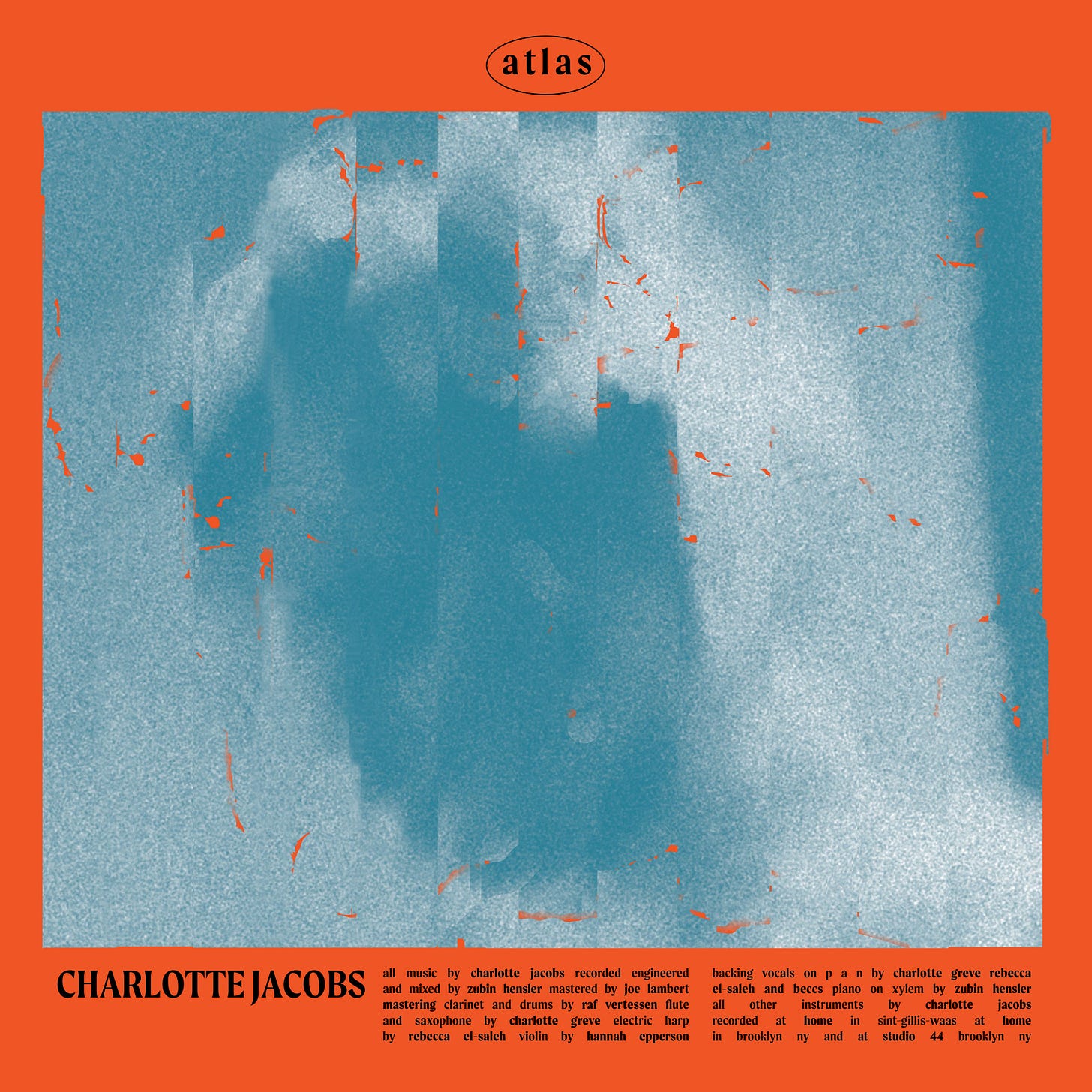Looking Back | Looking Forward: New Am's Comp Lab
Jan Esbra reconnects with William Brittelle and discuss the importance of a safe, creative, genre-fluid space in the music industry.
The Composer’s Lab has been a central part of New Amsterdam Records since its founding in 2017. Now entering its 7th year, and having served over 120 genre-fluid musicians from around the globe, the lab has become a staple for creative community-building, artistic guidance, musical inspiration, and the collective development of strategies for economic and emotional sustainability.
I moved to New York in 2018 and was introduced to NewAm via my friend (and fellow NewAm artist) Nathan Schram. I took part in the 2020 Comp Lab—a session that ran through the early days of the pandemic. This lab was one of the last remaining stable pillars in my life during those first few months of chaos and confusion, and it served as a grounding community space for its duration. Besides the novelty of that period, I still think about and reflect on the topics covered during my time in the lab. William Brittelle, the head of the lab, spoke at length about community-building, sustainable artistic practices, music business, genre-fluid composing, and the overall creative process.
Beyond the topics we covered, the Comp Lab participants themselves embodied one of the core ideas that William was exploring: that no two artists’ paths are the same. In my lab, the participants ranged from commissioned concert composers to commercial music composers, conductors and multidisciplinary artists to performers. Everyone’s path looked different, yet was still fully valid. This might seem obvious, but in times of social media and online comparisons, it’s easy to forget that the people who appear in the foreground of any given sphere are but a small percentage of the artists that are actively pushing the boundaries and making interesting work.
I got the chance to discuss Comp Lab’s history with William himself, and here’s what he shared:
How did Comp Lab get started?
“The idea for Comp lab started when I was hired by Mannes/The New School to develop and launch a “Minor in Post-Genre Music” (though I very much prefer the term genre-fluid), including the development of various coursework. The act of putting together the materials required brought a number of concepts I’d been gestating on for years up to the surface.
However, one of the issues I faced during this period was having this course be located specifically in NYC. There were musicians all over the world that were thinking about music in a genre-fluid way and I wanted to open it up more. Thankfully, this was at the beginning of the Age of Zoom, and all of a sudden we could share audio together and more easily facilitate this kind of remote community-building.
So, we launched Comp Lab remotely in order to connect people from all of these different physical locations who commonly felt like they lacked support and immediate community around what they wanted to do with, and how they were thinking about, their practice. The lack of community and support had led to many genre-fluid musicians feeling a bit isolated, and misunderstood. One of the main issues is that institutions, even now, focus so much energy on being “pointy”—training specifically for auditions, to win competitions, to secure academic positions—all approaches that are in many ways antithetical to what one might call the practice of genre-fluidity.
The idea was for Comp Lab, over time, to become a sort of non-local community. A fair number of Comp Lab participants have even moved to NYC and connected with the community here, and “cluster communities” have also developed all over the world (LA and Australia for example).”
What made you want to start the Comp Lab?
“The thing I noticed teaching in and lecturing at institutions was the lack of a basic curriculum about the music business, in regards to commercial music and strategies for fully monetizing concert work.
The common refrain I found is essentially this: the rigidity of how music is taught and presented doesn't serve people who are thinking about their practice and career more fluidly.
People were dumped out into the world without any kind of practical knowledge, strategies, or even ways to communicate effectively about their work. Everything about making a financially sustainable music practice was opaque and I felt that was really bad. This extends very much so into the non-profit and Performing Arts Center world where the mechanisms for funding—foundations, boards, grants, private donors—can feel almost purposefully veiled.
Musicians are so incredibly creative in every aspect of their life, but if they don't know what the game is, then they can’t make creative moves. They can’t make decisions about how to structure their lives and practice without really understanding the industry standards and parameters in order to develop sustainability around them (or, often, in defiance of them). So frequently, music industry knowledge is passed down in a way that focuses on capturing the dangling carrot—whether that’s the big orchestral commission, the virtual streaming hit, the big ad placement, the career-launching opening slot on a tour, etc., etc.—all things that involve an incredibly high level of luck and, often, artistic compromise. For the genre-fluid practice, it feels like strategies for sustainability are much more pertinent—merging friends/fans/donor networks into webs of support, building strong lateral relationships with like-minded peers, diversifying skill sets to augment freelance income. There are so many opportunities now available via means of direct fan support and engagement, and so much room for creativity, which is really exciting! But these new opportunities require the awareness and manipulation of the spectral remains of music industry infrastructure and practices to succeed, I think.”
How do you structure the topics and direction of the Comp Lab?
The best thing that's happened in the Lab, for me, is the positive feedback loop that has formed from session to session—each session has built on past ones, and the knowledge that is developed in one Lab is then brought into the next one and improved upon.
Early on, we covered a lot of ground orienting (or, maybe, disorienting) the concept of genre around a subjective experience, but in a way that acknowledges and respects the cultural traditions and stylistic practices of those genre spaces. At first, this felt really hard to talk about and it took effort to deconceptualize and reconceptualize things. We had to come up with new models of how to even talk about things.
Part of what's really helped, from my perspective, is learning from people and how they think about genre, how they're conceptualizing it, and what sort of extra musical aspects they're connecting to in their own work that helps inform these concepts. We’d have some wonderful and enlightening group discussions in this regard. I try to just put bits of these discussions into a backpack and bring them to the following sessions. The Comp Lab has become a gathering of collective knowledge and collective experience that gets centralized as part of this process and seems useful for people; almost an oral tradition, in that sense…A living, ever-growing archive.”
Can you talk a bit about your role and that of guests in the Comp Lab?
“My role is information sharing, so I share strategies that seem to be successful from Lab to Lab. I aim for strategies that are really adaptable to people’s individual practice.
Resources are harder and harder to come by and people are diving more into making things themselves. Comp Lab is a good place for this because we've started to have guests who are at the top of their field (Tyondai Braxton, Darcy James Argue, Holland Andrews, and Shahzad Ismaily to name a few) and we encourage participants to "ask all the questions you've been afraid to ask." Whether it's about the industry, creative process, mixing, or releasing music.
I want to keep an eye on people's developmental gaps and find ways for Comp Lab to be the glue and the scaffolding that fills in those gaps in order to give people a better shot at having a holistic and sustainable practice.”
What kind of impact do you see the Comp Lab having on its participants?
“One of the things that's really interesting about this community is that this generation has a fundamentally different stance on art music, or concert music, or whatever you want to call it. To the extent that that lineage still exists, people seem much less inclined to base their practice on trying to rebel against previous stylistic trends. Instead, they're trying to figure out who they are, what they're about, what makes them so excited musically that they want to explode with joy— and then stay true to those influences and ideas. They’re figuring out what they're most psyched about and then building community in order to communicate that vision.
That kind of artistic journey is ultimately, and fundamentally, lonely and subjective. The level of self reflection required upends a lot of our normal metrics of success, when ultimately these metrics are based on spiritual growth and financial and artistic sustainability. If you feel in your soul that you have made work that is truly unique and truly reflective of your experience as a human—something that you want to put on when you’re feeling emotionally vulnerable on a long drive, or train ride, or staring out the window of your apartment, then you’ve won. The press, the grant panel, the bossy professor—they all lose their power. Sadly, they often still control the allocation of resources, but at least you, at that point, haven’t surrendered the sanctity of your practice, the whole reason you got into this crazy “business” in the first place.”
I asked this question directly to a fellow Comp Lab alumna, Charlotte Jacobs. The New York-based vocalist, composer, and producer shared how the lab experience “creates a space where you can be vulnerable about your music and share it with a supportive community of composers. Comp Lab gave me the confidence to believe in my work and to aim high. In October 2024, a t l a s was released on NewAm, and the following month, I had the honor of performing it at National Sawdust in Brooklyn—a venue I’d always dreamed of.”
She highlighted how Comp Lab taught her how to talk about her music, “something that isn’t always easy but is such an important skill to develop. It’s a rare gift to have a space where you can be vulnerable, connect and grow as an artist outside of a school-like environment. I am very grateful for my time at Comp Lab and for my fellow lab-ers, as they became true friends.”
For me, Comp Lab was one of the most valuable and memorable experiences I’ve had while living in NYC. Nathan’s introduction to NewAm and the work we did together for his debut album The Oak and The Ghost was the catalyst for a full circle moment a few years later. Now I’m heading the press efforts at NewAm and feel so grateful to meet and work with so many wonderful artists and to be a part of this community and team. The lessons learned in the Comp Lab have given me tools and strategies to pursue my own music while finding a healthy balance between work and art.”
—
For more information on applying to the Comp Lab, please visit here. For information on how to support the Comp Lab, please consider making a donation here.
This article was written by Jan Esbra, PR Manager for New Amsterdam Records.





